Imagine uniting your organization’s data into a single, accessible source of truth. Imagine the power of your organization if every department—whether organizing, communications, or membership—was empowered to easily access, analyze, and act on the data they need.
Harnessing and leveraging data has become critical in driving successful campaigns and making informed strategic decisions. Yet, for many unions and progressive organizations, the reality of data management is far from ideal. Data is often scattered across departments, stored in silos, and difficult to access or analyze. This fragmentation not only hinders the ability to act quickly and decisively, but also creates a barrier to the kind of strategic, data-driven decision-making that is essential for growth and effectiveness.
This article will explore how democratizing data analytics propels organizations forward. We’ll outline practical steps for overcoming data barriers and highlight the profound impact that accessible data analytics can have on your campaigns and overall mission. Whether you’re leading a large national union or a small grassroots organization, the tools and strategies we’ll cover can help you unlock the full potential of your data—making dynamic data solutions more attainable than ever.
What Is Democratization of Data Analytics?
Democratization of data analytics refers to the process of making data and the tools needed to analyze it accessible to everyone within an organization, regardless of their technical expertise. Traditionally, data analytics has been the domain of data scientists and IT professionals, but democratization aims to change this by lowering the barriers to entry. It ensures that every department, from communications to organizing, can access the data they need, when they need it, without relying on a centralized team to generate reports or insights.
Why Is Democratizing Data Analytics Crucial for Unions and Progressive Organizations?
Unions and progressive organizations often work with limited resources and face significant challenges in organizing, mobilizing, and communicating effectively. The traditional approach to data management in many unions and progressive organizations is fragmented. Different departments collect and use data in isolation, leading to inefficiencies and missed opportunities for collaboration.
By democratizing data analytics, organizations can break down these silos and create a more integrated approach to data management. When everyone has access to the same data and the tools to analyze it, they can make more informed decisions, identify trends, and respond more quickly to changing circumstances.
The Benefits of a Unified Data Approach
- Improved Targeting and Resource Allocation: By working from the same data, teams can target efforts more precisely. Data-driven insights allow for better resource allocation, ensuring maximum impact without wasted time.
- Informed Campaign Strategies: When data is accessible and easy to use, it becomes a natural part of the decision-making process. Teams begin to rely on data to inform their strategies, rather than making decisions based on intuition or anecdotal evidence.
- Organizational Impact: A unified data approach leads to more cohesive and aligned organizational efforts. Organizations that embrace data-driven strategies are better equipped to drive their mission forward.
Removing Barriers to Data Accessibility
One of the biggest challenges in democratizing data analytics is the perceived complexity of the tools. Traditional data platforms can be daunting, filled with technical jargon and complicated interfaces that deter widespread use. However, modern data solutions are increasingly designed with user-friendliness at the forefront. These platforms feature intuitive dashboards and automated reporting tools that break down the complexity, making it easier for everyone to engage with the data. Picture a membership coordinator who can quickly generate a report on member engagement trends without needing to rely on IT support—that’s the kind of accessibility that transforms how an organization operates.
Fostering a Culture of Data-Driven Decision-Making
For data accessibility to have a lasting impact, there must be a cultural shift within the organization. Leadership plays a crucial role in this transformation. When leaders prioritize data-driven strategies and consistently model this behavior in their decision-making processes, it sets a powerful example for the rest of the team. It’s not just about having the right tools. Removing barriers to data accessibility means making data analytics understandable, approachable, and usable by all, regardless of their technical background.

Practical Steps to Democratize Data Analytics
- Adopt Role-Based Data Access
Implementing role-based access within data systems ensures team members only interact with data relevant to their roles. This approach simplifies data usage and reduces the cognitive load, making it easier for each team to make informed decisions quickly. For instance, an organizer might focus on data related to member participation in events while the communications team tracks data on social media engagement. - Invest in Training and Ongoing Support
Regular training sessions and continuous support are essential to build confidence in using data analytics tools. These efforts reinforce the technology and foster a learning culture, enabling team members to fully leverage data in their work. - Demystify Data Analytics Terminology
Simplifying technical jargon through plain-language explanations and internal glossaries makes data analytics more approachable. Users who understand the terminology are more likely to engage with and benefit from the tools provided. - Create a Culture of Data-Driven Decision-Making
Leadership must champion data-driven decision-making to embed it in the organization’s culture. Celebrating data-driven successes motivates teams to embrace these practices, gradually making them an integral part of the organization’s DNA. - Implement Feedback Loops
Gathering feedback on data tools and processes regularly allows for continuous improvement. Involving users in this iterative process empowers them and ensures the data environment evolves with the organization’s needs.
Overcoming Challenges in Data Democratization
- Addressing Technical Hurdles
One of the primary challenges in democratizing data is navigating technical barriers. Organizations often struggle with outdated or disjointed data systems that inhibit seamless access. To overcome this, it’s crucial to modernize the data infrastructure and implement user-friendly platforms that integrate various data sources into a cohesive system. - Overcoming Inertia
Resistance to new data practices often stems from inertia—an adherence to “the way things have always been done.” Overcoming this requires strong leadership and a clear, compelling vision for how data-driven strategies can lead to better outcomes. By demonstrating quick wins and long-term benefits, organizations can build momentum for change. - Breaking Down Data Gatekeeping
Data gatekeeping—where information is controlled by specific individuals or departments—can stifle progress. To counter this, organizations should establish clear data governance policies that promote transparency and shared access while maintaining data security and integrity. - Bridging the Talent Gap
The lack of expertise in data science and analytics within organizations can slow down the democratization process. Providing targeted training and bringing in external experts can help bridge this gap, empowering staff to confidently work with data and integrate it into their decision-making processes. - Ensuring Continuous Support and Adaptation
Finally, data democratization is not a one-time effort; it requires ongoing support and adaptation. Organizations must remain responsive to the evolving needs of their teams, continually refining tools, processes, and training to ensure that data remains accessible and actionable for everyone involved.
Take the Next Step in Your Data Analytics Journey With TCW Strategies
For unions and progressive organizations of all sizes, democratizing data analytics doesn’t just level the playing field—it changes the game entirely. By removing barriers to data access and providing the necessary tools and training, organizations can ensure that everyone is equipped to make data-driven decisions that propel them forward. The ability to harness the full power of data can be the difference between a lackluster campaign and one that truly drives meaningful change.
If you’re ready to witness measurable progress from your organization through democratized data analytics, we’re here to help. At TCW Strategies, we specialize in making data accessible and actionable for unions and progressive organizations of all sizes. Whether you’re just starting your data journey or looking to take your existing efforts to the next level, we have the experience and tools to support you every step of the way.
Contact us today to learn more about how we can help you transform your data into a powerful engine for change.
Read More
- Transform Your Data Into Action: The Essential Guide to Democratizing Data in Your Organization
- Strategy Spotlight: Meet the Team
- Top 4 Data-Informed Growth Strategies for Unions and Progressive Non-Profits
- Relieve VANxiety: Secure Your Data With Modern Solutions
- Your Campaign Success Depends on Precise Audience Targeting


